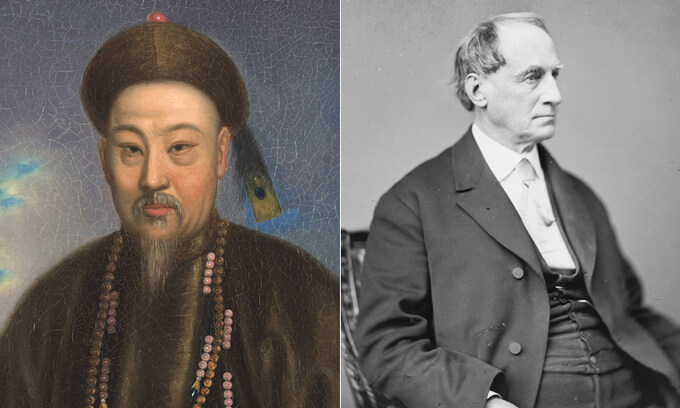중국, 미국과 관세 협정 완료
본문
U.S.-China Trade Treaty Negotiations
After the Anglo-Chinese Nanking treaty of 1842, other Western trading nations hastened to obtain peacefully the advantages won by Britain in the Opium war. President Tyler of the U.S., with the approval of Congress, decided to dispatch a trade mission to China and secure these advantages by treaty. The House representative from Massachusetts, Caleb Cushing, headed the Mission which was conveyed by a small naval squadron to China, landing at Macao in Feb. 1844 after a voyage lasting 208 days. He had been directed to go to Peking, if possible, in order to present at the Imperial Court the president"s letter to the emperor requesting trading concessions on an equitable basis along the lines of the (British) Nanking treaty concluded earlier.
True to form, and despite advance notice of several months, his Chinese hosts adopted the usual delaying tactics and undiplomatic stratagems: any possibility of a journey to Peking would have to await the emperor"s will; a sea-journey northward to Tientsin would not be looked upon favorably; any discussion of trade matters could only be done by intermediaries, and so on. So Cushing and his companions meanwhile had to cool their heels at Macao until the emperor"s wishes became known. After two-and-a- half months the decision came back; a visit to the capital (Peking) would be highly irregular and, instead, the envoy should await the arrival of the emperor"s Commissioner Ch"i-ying (who had two years earlier negotiated the Nanking treaty with Britain).
Pleased by the conciliatory attitude of the Chinese negotiator, Cushing decided not to insist on the main sticking-point--the visit to Peking--and with that issue removed, Ch"i-ying duly arrived at Macao in June and the treaty was completed and signed on July 3, 1844 as the Treaty of Wanghsia. As in the British treaty, five ports were opened to the trade of Americans and the residence of consuls, most- favored-nation and extraterritoriality provisions were included and, in contrast to the Anglo-Chinese agreement, the trading of opium was specifically prohibited. The treaty was subject to revision in twelve years. It is interesting that throughout his long stay in China Cushing never set foot in Chinese territory proper: denied entrance to Canton and refused the overland trip to Peking, he remained at Macao, territory at the entrance to Canton harbor leased by China to Portugal.
조선은 언제 미국이랑 통상하냐




